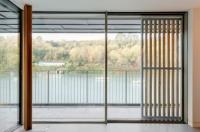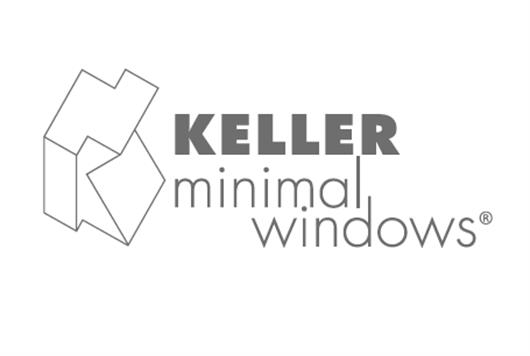 Add My Company
Add My Company
Sign In
Condensation on glass: When is it a problem?
04-05-2023

What causes condensation on glass?
A question we often get from clients after installation is whether or not they should be concerned by condensation on glass.
In most cases the answer is no, condensation forming on glass happens naturally when humid air comes into contact with a cold surface, such as glass.
Condensation happens when moisture in the air comes into contact with a colder surface the water molecules in the air turn from a gas into a liquid. The liquid collects on the glass surface to create condensation.
Due to the low thermal mass of glass it doesn’t retain heat and therefore always tends to be the coldest surface in the room, and the most likely placed internal condensation will form if the space is not adequately ventilated.
Should I worry about condensation on windows?
There are three types of condensation when it comes to external glazing. If the condensation if forming on the outside of the glazing, whether this is internal or external then no, this is not a concern. If however, the condensation is inside the insulated glass unit then this may be due to an issue with the seals.
External condensation
This is when condensation on glass forms on the outer face of the outside pane. This occurs when highly insulated glazing systems are used, as the glazing is so thermally efficient that very little heat from the inside of the home reaches the outer pane, meaning the external pane always remains cold.
When condensation forms outside the home on your windows, door or rooflights, this is not an issue with the glass but simply shows that the internal living space is well insulated.
Internal condensation
This is the build-up of internal humidity on the outer side of the inner glass pane and can occur in many ways.
One of the most common is when the space is often inhabited by people, and these people are continuously breathing out moisture which settles on the cold glass panes. Cooking and plants also contribute to the internal moisture in a home.
This can be combatted with proper ventilation, something your architect can incorporate into the design. In accordance with Approved Document F of the UK building regulations background ventilation should be used to deal with day-to-day humidity and purge ventilation for sudden build-ups of condensation.
Condensation within an IGU
When condensation starts to form between the panes of the insulated glass unit, inside the gas cavity, and this is the only time for concern.
Condensation inside of a glazing system usually indicates an issue with the seals of the desiccant material within the seal has become saturated. This can happen naturally over time.
If air seeps into the argon gas cavity, as the air contains water vapour this will react with the cool glass surface inside the cavity and cause condensation. This means the glass unit will likely need to be replaced. Here we would recommend contacting your glazier to see if the system is still within warranty.
How to prevent condensation on glazed windows and door?
One way to prevent condensation build up on your glazing is to specify heated glass. This is where a transparent metal oxide coating is applied which electricity can be passed through.
This generates a radiant heat source that prevents the formation of condensation on glass. The heated glass can be set at a certain temperature or programmed to work with smart home automation systems and can be heated to a surface temperature of 20° to 60°C.
This is especially effective in areas such as indoor pools or spa areas. One of our recent sustainable new build projects in Hampshire, Claywood House, used heated glass around the indoor pool to prevent condensation on glass.
Another project in Cheshire involved bespoke double height glass walls and sliding doors for a luxury pool house. Heated glass was used for the structural glass walls and slim sliding doors, always allowing clear views in and out of the pool house at all times.
For more information about condensation on glass and how to combat this, contact the minimal windows team today.
For more information on Condensation on glass: When is it a problem? talk to Minimal Windows® by Keller
Enquire Now
List your company on FindTheNeedle.

